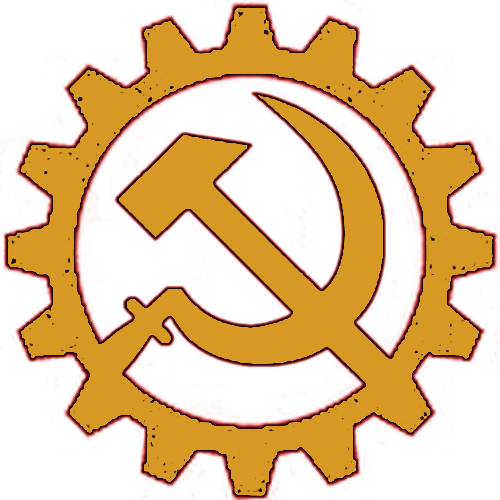You can do that right now in every modern socialist country, but what about the USSR and the Warsaw Pact? And any future socialist and communist experiment(s)?
By self-employment, I'm indeed referring to running your own business, but I'm referring to a sole proprietorship or freelancing, not your typical business where other workers are exploited for the benefit of the owner.
It's also a worker's co-op of 1, lol.
Socialism has many definitions. Some formulations could end up with sole proprietorships. Anything that's basically artisinal and can be done by one person has the potential to be like this. Different socialist societies can decide this kind of thing on their own.
Under communism, class separations would be minimized, even cease to exist, as the working class abolishes the other classes (and then itself). It's an interesting question of whether this means a situation in which you'd become a little bougie (sole proprietorship) would be impossible, by law and social convention, or whether the conditions would make it impossible for this to be bougie and you can do whatever you want in terms of making and selling stuff because it will never actually be able to acquire a bourgeois character due to systemic effects (like post-scarcity).
Technically if you are self employed you are not being exploited by the company that you run yourself. There might be exploitation by other aspect of market forces. They are the worker that owns the means of production.
If you want to do work that meets people's needs, and you can do it yourself, I don't think any system (that doesn't hate you for discriminatory reasons) would have any reason to stop you. Traveling merchants were around in the times of slavery and feudalism. There were also traveling merchants all over the pre columbian new world.
A sole proprietor business is not a threat to any institution of power by simply being a sole proprietor. By themselves, they lack the power to coordinate action against the status quo. Atomized individuals can't coordinate a means to destroy the collective institutions that promote the status quo.
Under ideal conditions of socialism the real threat comes from sole proprietors sneaking their way into creating MCM transactions by exploiting other sole proprietors. MCM transactions are when someone starts with money, trade it for some commodity, then get more money back than what they started without performing work themselves. Socialists prefer CMC transactions to be the norm. CMC transactions are transactions where a commodity (often labor) is traded for money, and that money is used to buy other commodities. MCM transactions can allow those that luck into a large amount of money to invest and create more money at a rate that the money can be used to generate political power, which is a threat to socialism. The party would be at fault for not having a good relationship with the people if this person was able to invest in the needs of the people better than the party could. A good decision would be to reward them for their ingenuity and incorporate them into the socialist system by giving them the ability to find what the people want and have them teach the party cadres how to more effectively find the needs of the people.
"Employment" only exists with commodity production. If there is no commodity production, and all labor is socially necessary, i.e. Communism, then no you would not be self employed. You would be an individual worker but bound to the work deemed necessary by planning.
And you could propose work to the councils and planners that you think would be helpful. There’s little reason in that situation, however to go it alone as a “micro-business” or whatever.
It is worker’s ownership of the means of production. If it grew the new people would just have to be cooperative owners. Iirc Gaddafi advocated for such socialist entrepreneurialism in the second section of the green book.
Depends on the stage of socialism; as you mentioned, it's currently allowed in every AES country, to a greater or lesser extent. For communism, no; any mandatory work (most of which would be eliminated once society is sufficiently automated) would be in service of your community, but you would be able to spend your free time (which would be significantly more than 8 hours) working on whatever you'd like. There would almost certainly be some system where artisans can suggest ideas and be given the necessary resources, including time away from their regular job if the idea is considered sufficiently beneficial to the community
no. A socialist country which allows people to put up own businesses would have some kind of "free-market" where you can open a Pizzeria and have to compete with the guy next block who also happens to have opened a Pizzeria. Under such society competition would arise between the self-employed where someones Pizzeria would win the competition by making cheaper Pizza or whatever and therefore gain more customers (customers which the competitors Pizzeria would loose which then again lead to the competitor eventually loosing his shop) We would see the problems of capitalist society or at least some aspects of these rise up in such a scenario.
USSR had small-scale coops called 'артели', and sole proprietorships weren't even regulated IIRC. In some Warsaw Pact countries like Hungary it was even allowed to organize small-scale businesses with hired labour.
I'm not educated enough to answer that, but there is this interview where Aleida Guevara gives her opinion on it (it starts at 4:00).
She basically says that she doesn't like it because it promotes individualist thinking, and so should be avoided if the material conditions allow it.
Why would it be any different. Work is work, if somebody needs it done and you're willing to do it - great.






